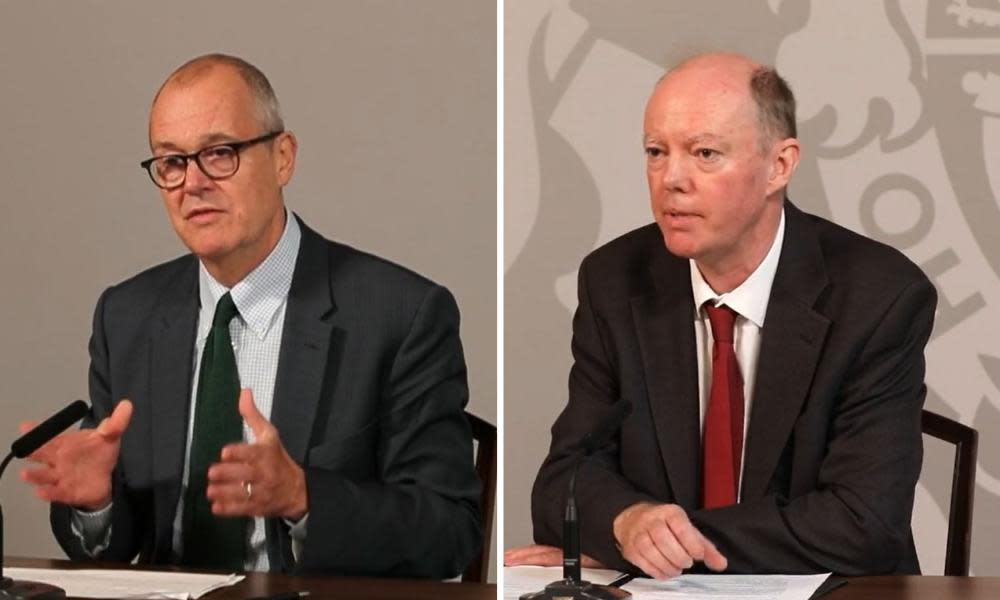Britain needs to live with coronavirus, not in fear of it

Thank goodness for scientists talking about coronavirus rather than politicians. They speak English and sound sincere. Today’s presentation by Whitehall’s Sir Patrick Vallance and Chris Whitty was devoid of slogan and cliche. They just wanted to say that the virus was back, Covid-19 numbers were rising and we all should be worried. So far so reasonable.
What they did not do was take questions on their alarming thesis or indicate how it should affect government policy. They based their argument on two countries, Spain and France, both with “case surges” far worse than the UK, without mentioning Italy, Germany, Sweden or elsewhere – evidence that might point in the opposite direction.
Vallance and Whitty seemed trapped by the need to sustain public concern. We know the graph that appears each evening on the BBC showing UK cases rising ever nearer the 5,000 registered at the virus’s peak in April. Everyone familiar with this graph knows it to be misleading. There was no proper testing in April and even the BBC explains that that peak figure was a wild underestimate. In addition, testing practice varies so widely across the UK and Europe that comparisons are meaningless. But the graph lingers on.
The illness has clearly returned, as was predicted, but with nothing like its April virulence. The figure to which most epidemiologists attach significance, that of “excess deaths” over the seasonal norm, which soared in April, now remains close to normal. Covid-19 hospital admissions are rising, but by some 200 a day compared with 3,000 a day in April. With 991 people dying of ordinary flu in a week, against 78 from Covid, the virus cannot be described as so ominous as to require a return to national lockdown.
Citing a potential “exponential rise” in deaths as Vallance did is to deploy the same threat as was used by Imperial College’s Neil Ferguson with his forecast of half a million deaths back in March.
Respectable scientists outside the Downing Street clique plead almost daily for the nation to get used to living with this illness through the winter, shielding the vulnerable and ensuring that hospitals can cope with a winter upsurge. The outlook for a vaccine next year, as Vallance said, is genuinely hopeful.
Anyone travelling at present elsewhere in Europe notes almost universal mask-wearing and hand-washing, but none of Britain’s indiscipline, panic and economic implosion. Today’s scientists failed to supply any evidence of the effectiveness of the rule of six or of some undisclosed “circuit breaking” technique. Yet these one-size-fits-all measures are plainly devastating to large areas of the economy. As for excusing university students, office workers and grouse shooters, we are left in the dark.
Whitehall rumours abound of deep divisions between the “bubble” of scientists round Boris Johnson and other ministers wrestling to keep the economy and normal life in some sort of order. In other words, British policy is fractured just when it needs to be coherent. This virus is clearly endemic until a vaccine is developed. That seems inevitable. It is not inevitable that the government cripples the British economy beyond anything experienced previously, curbing personal freedom and inflicting misery and mental stress on millions. Only in Britain is this contemplated, and with “the science” cheering it on.
• Simon Jenkins is a Guardian columnist

 Yahoo News
Yahoo News 
